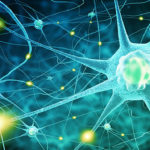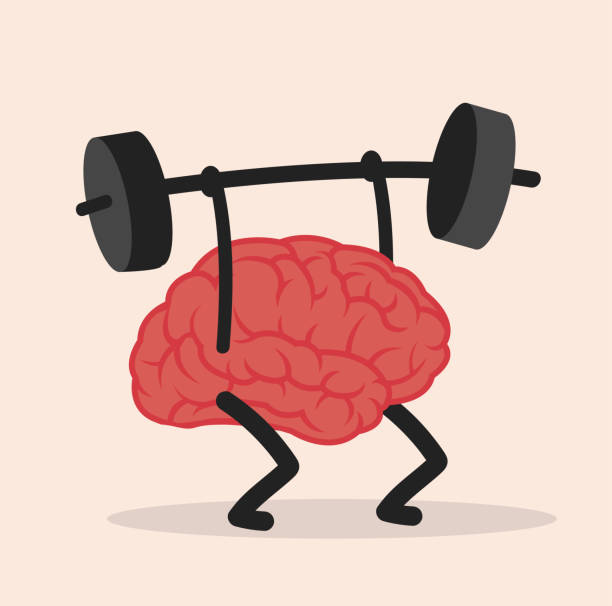Did you know that only 10-20% of people with schizophrenia have a job? And that those who had one before the onset of the disease frequently lose it or have great difficulty keeping it when the disease has set in?
At Groupe Innova, we are helping to raise this statistic by hiring a majority of workers with mental health problems. Behind every good or service we offer, there is a story. A unique story steeped in challenges and adversity. Very often, our workers have experienced difficulties in their professional career.
But what are these barriers to employment?
It seems that clinical symptoms of the disease and cognitive deficits are the two main factors involved.
Antipsychotics help reduce clinical symptoms. However, we have found that they have no effect on cognitive deficits, which are disabling.
The latter can nevertheless be improved by cognitive remediation (or rehabilitation).
In this article, I will discuss how cognitive remediation enables new cognitive challenges to be taken on and how it promotes job integration and retention in people with schizophrenia and bipolar disorder.
Cognitive deficits in people with schizophrenia
First, people with schizophrenia have been shown to have cognitive deficits:

- Attention (the ability to maintain attention, to shift attention from one point to another).
- Working memory (ability to keep in mind several pieces of information on which mental operations are performed).
- Executive functions (control of thoughts, actions and emotions).
- Metacognition (watching yourself think).
- Social cognition (predicting or explaining the behavior of our fellow human beings by attributing to them beliefs, wishes, intentions and emotions).
These cognitive deficits are involved in daily functioning. For example, a person who is unable to focus his/her attention might have difficulty following a television program. Or a person who has memory difficulties might shop with difficulty.
Cognitive difficulties also have an impact on social skills or the ability to occupy certain social roles (having a partner, raising children).
Cognitive deficits in people with bipolar disorder
As with schizophrenia, people with bipolar disorder also have cognitive deficits. Between crisis, cognitive deficits affect memory, attention, information processing speed, and executive functions. The overall intellectual level is not altered. No significant difference in intelligence quotient was demonstrated between bipolar subjects and healthy controls.
Bipolar people have a working memory deficit, which plays an important role in functional disability: difficulty in following a conversation, reading, performing a double task, etc.
Several studies report a link between psychotic symptoms during a crisis and a deficit in working memory. Thus, the impairment in working memory would be more associated with psychotic symptoms rather than with the diagnosis as such.
According to the neurotoxic hypothesis, the repetition of the crisis would lead to cerebral degeneration, resulting in the appearance or worsening of cognitive disorders.
Cognitive remediation
But cognitive impairment can fortunately be improved through cognitive remediation. This supplements the action of antipsychotics and psychotherapy. It strengthens the connections in the brain.

Validated only in patients with schizophrenia, several authors suggest that it would be of benefit to patients with bipolar disorder.
Its use in patients who have had a first psychotic episode is strongly recommended (after the crisis). It should be preceded by an evaluation in neuropsychology which allows the precise characterization of cognitive disorders.
Once the disorders are identified, cognitive rehabilitation helps train deficient cognitive functions, such as attention, memory and executive functions. It is based on the repeated passing of batteries of cognitive tests.
Cognitive rehabilitation also makes it possible to strengthen the cognitive skills involved in social relations: decoding the emotions and intentions of others, taking into account the contextual elements making it possible to understand interactions, etc.
Note that cognitive remediation programs would be even more effective if the rehabilitation strategies were adapted to the specific problems encountered by the person.
Types of approaches
There are four types of cognitive remediation approaches.
- Cognitive training of basic abilities: this is intensive training of a cognitive skill (eg attention, working memory) and which is based on brain plasticity. The goal is to increase the recruitment of neurons dedicated to cognitive function. The computer is used very often.
- Learning strategies: learning strategies useful for better accomplishing the task. For example, to improve memory, a person can learn to organize and categorize information, or identify the essential points of a story to understand and remember it.
Here are some examples of strategies:
Strategies for learning
- To concentrate
- Remember big ideas first, then details
- Make meaning with information in relation to our interests
- Using our senses and our body
- Make the information far-fetched
Storage strategies
- Gather
- Think in pictures
- Repeat
- Spaced learning (practicing at home, while driving)
- Find meaning
Strategies for remembering
- Visualize the context
- Move your body
- Think about another topic and come back to it later
Strategies for dividing your attention
- Don't do too many tasks at the same time
- Avoid multitasking during a new or difficult activity
- The two tasks should be as different as possible
- Prioritize one of the tasks if necessary
- Compensation approaches: checklists, etc.

- Integrated programs: these are complete group programs that combine different types of learning relating to basic cognitive functions, social skills and problem-solving skills. Examples are IPT (Integrated Psychological Therapy) and CRT (Cognitive Remediation Therapy).
At Groupe Innova, certain strategies are used to compensate for the deficient cognitive skills of workers. Thus, establishing a reassuring routine overcomes a weakness in working memory, while an emphasis on technical tasks requires fewer advanced cognitive skills. Groupe Innova is also distinguished by its unparalleled support for its employees, which facilitates problem solving.
Professional integration and job retention
In schizophrenia and bipolarity, getting a job and the ability to stay in work are often compromised by the existence of cognitive impairment. In turn, the lack of employment is linked to the lack of financial autonomy and the difficulties in social integration. This increases the financial and social cost of the disease.
Since cognitive remediation improves professional integration, it should be offered before any return-to-work project.
Socialization
Of course, there is cognitive rehabilitation, but there is also socialization. Regular socialization - which may include a meal with friends, a long phone call, or participating in group activities like physical activity classes or volunteering - stimulates cognitive brain functions and promotes good mental health.
In conclusion
Through its different approaches, cognitive remediation improves cognitive skills, and by extension, improves employment integration and retention. In reality, cognitive skills are like the base of a pyramid. When this foundation is stronger, the person with the disease is able to work on other areas of their life.
A stronger foundation is also the ability to see frustration as a challenge. Instead of saying “ I can't do this. It's too difficult. " Why not say " This challenge is an opportunity to exercise my cognitive skills. Frustration means it's a good challenge for my brain. "
But beyond the cognitive deficits caused by mental illness, it must be recognized that people with this type of condition have often developed a variety of qualities that are all to their credit: perseverance, commitment to work and concern for the job well done.
And you, do you find that workers with a mental health problem have developed qualities that constitute advantages for the companies that hire them?
Tell me everything in the comments.
